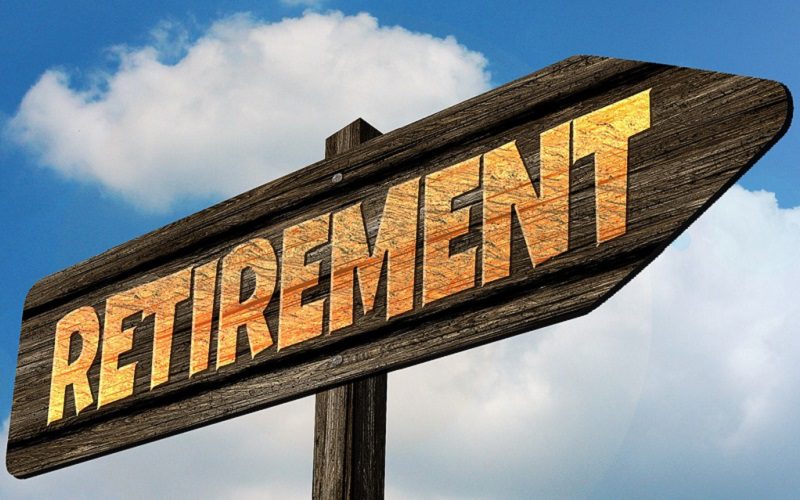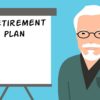Advice
What You Need to Know About Retiring During a Recession
The world economy is not good. If that seems like an understatement to you, you’re not alone. Millions of baby boomers are expected to retire over the course of the next couple of years and many of them are filled with anxiety not only over hyperinflation plus spiking gas and food prices, but also over retirement accounts that have been cut in half (or worse) in some cases.
So, what to do? One financially sound way to beat the recession blues is to immediately seek out a reverse mortgage. If you’ve lived in your family home for decades and have been paying the mortgage religiously, you can tap into all that equity and make up for your financial losses during what appears to be an impending recession.
You can either take your proceeds in one lump sum or in monthly disbursements. But to find out the details behind applying for a reverse mortgage go to this website: https://reverse.mortgage/how-does-it-work.
But what other ways can you prepare yourself for retirement during a recession?
According to a recent article, it’s not only recent grads who are worried about the long-term effects a recession can have on the economy, it’s new and/or soon-to-be retirees. The severe downturn in the economy has most people reevaluating goals and plans, “for better or for worse.”
This could mean putting off expensive trips or purchasing that ski cottage you’ve had your eye on for a while, or that new fishing boat. It can also mean settling in for a few more years of hard work before you can contemplate retirement altogether.
Say the experts, the “three-legged stool” model of retirement has become “obsolete.” The three legs being an employer-sponsored retirement plan, social security, and your own personal savings. Recent economic forces largely brought on by new Washington D.C. policies, have caused skyrocketing inflation, spiking energy prices, and more problems that have severely reduced retirement plan balances, stock market portfolios, and personal savings.
Simply paying the monthly bills all too often means cutting into your savings or worse, charging them on a credit card, the interest rates for which are on their way up thanks to the Fed.
All this said, here are some steps you can take now to prepare for retirement during a recession.
Pay Off the Mortgage
Most people attempt to pay their mortgage off prior to retirement, which means it’s not often discussed as a “retirement strategy.” When saving for retirement you should plan on doing away with all the big bills and devote that savings to building assets and savings.
You should never discount the peace-of-mind that can go with living a mortgage-free life. Again, if you need extra money, check into a reverse mortgage plan.
Downshift and Downsize
Financial advisors usually base retirement calculations on replacing enough of your income via savings that support your pre-retirement lifestyle. But what you have to ask yourself is this: Is my plan realistic?
What precisely requires sacrificing during your working years so that you can maintain your current standard of living when you retire? Perhaps just knowing you will enjoy the freedom your golden years can offer is enough motivation to get you to sacrifice some of the life’s luxuries.
Maybe living on a smaller budget or living in a modest home (or even an apartment), and taking fewer vacations will all seem like trades that are worth the freedom you will have in retirement even if there’s a full-blown recession underway.
Save More Money
Experts agree that savings is a vital component of a successful retirement plan. Saving more is a “winning strategy.” These days, financial experts are seeing the recession writing on the wall with pre-tax 401(k) contributions. Therefore, they are advising clients to redirect a bigger share of cash to Roth IRAs.
With the present POTUS committed to raising personal tax rates, you should plan on putting away pretax cash while you’re still young. You will take advantage of a lower tax rate since withdrawing money at 59.5 years of age might not be the best idea anymore.
Whatever savings approach you choose, having more choices in retirement means saving and tightening your belt while you are young until it almost seems painful.
Supplement Your Income
Lots of post-retirement people elect to take on part-time work either in their previous fields or in occupations that come with far less stress or responsibility. In fact, some financial experts agree that “the days of all-or-nothing retirement” may be at an end. However, that doesn’t mean you can’t enjoy your retirement even if it’s technically a semi-retirement.
Additional income during the golden years can serve to supplement personal savings. Psychologically speaking, it also helps retirees feel engaged and involved in their local communities.
In many ways, 65 is the new 55, and people are just not ready to sit home and do nothing all day. This especially holds true during a recession and a time of economic turmoil.







